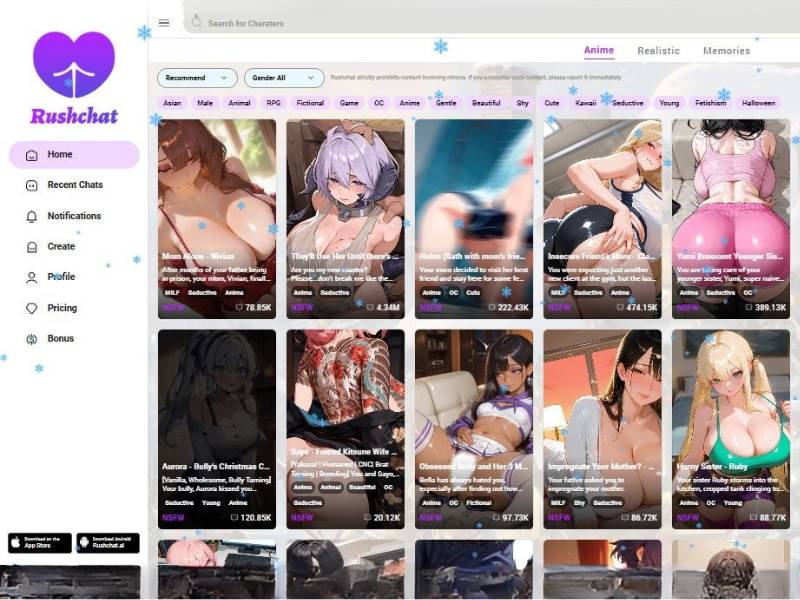In today’s digital age, the internet has opened up a world of opportunities for individuals to earn money from the comfort of their homes. One of the most accessible and versatile ways to monetize your skills is through online writing. Whether you’re a student, a stay-at-home parent, or someone seeking a side hustle, writing articles can be a lucrative avenue. This guide will walk you through the step-by-step process of turning your writing passion into a profitable online career.
Step 1: Choose a Niche That You’re Passionate About
Before diving into writing, identify a niche or topic you’re knowledgeable or enthusiastic about. A niche helps you target a specific audience and stand out in a crowded market.
-
- Research Popular Topics: Use tools like Google Trends, Reddit, or Quora to find trending subjects.
-
- Assess Competition: Look for niches with demand but manageable competition. For example, “eco-friendly living” or “personal finance” are popular but have room for fresh perspectives.
-
- Leverage Your Expertise: If you have a background in tech, health, or travel, focus on that. Passion and expertise make your writing more authentic and engaging.
Pro Tip: Start with a niche you’re already familiar with. This reduces the learning curve and increases your chances of success.
Step 2: Master the Basics of Writing
While creativity is key, professional writing requires technical skills. Here’s how to build them:
-
- Improve Grammar and Clarity: Use tools like Grammarly or Hemingway Editor to refine your writing. Practice by reading well-written articles and analyzing their structure.
-
- Understand Different Article Types: Learn to write blogs, how-to guides, listicles, reviews, and opinion pieces. Each has its own tone and style.
-
- Read Regularly: Stay updated on industry trends and improve your writing by studying the work of established authors.
Bonus: Take online courses (e.g., on Coursera or Udemy) to polish your skills. Many platforms offer free resources for beginners.
Step 3: Build a Portfolio to Showcase Your Work
A strong portfolio is essential for landing clients or jobs. Here’s how to create one:
-
- Start with Free Platforms: Use Medium, LinkedIn, or WordPress to publish your articles and gain exposure.
-
- Write Sample Articles: Create content on topics within your niche to demonstrate your abilities. For example, if you’re into fitness, write a guide on “5 Easy Morning Workouts.”
-
- Create a Personal Website: If possible, build a blog or portfolio site using platforms like WordPress or Wix. This gives you more control and credibility.
Key Tip: Focus on quality over quantity. A few well-crafted articles are better than many low-quality ones.
Stp 4: Find Platforms to Sell Your Articles
Several online platforms connect writers with clients seeking content. Explore these options:
-
- Content Mills: Sites like WriterAccess, TextBroker, or Upwork pay per article. However, rates are often low (e.g., $0.10–$1 per 100 words), so use these as a stepping stone.
-
- Freelance Marketplaces: Platforms like Fiverr or 99designs let you set your rates and bid on projects. Start with lower rates to build your profile, then increase as you gain experience.
-
- Blogging Networks: Join networks like Article Dash or RyMirror to submit articles to multiple websites. These often pay per word or per article.
Pro Tip: Always read the platform’s guidelines and focus on reputable sites to avoid scams.
Step 5: Learn SEO to Increase Visibility
Search Engine Optimization (SEO) helps your articles rank higher on Google, driving traffic and potential income. Essential steps include:
-
- Keyword Research: Use tools like Google Keyword Planner or SEMrush to find relevant keywords. For example, if you’re writing about “healthy recipes,” target terms like “easy healthy meals for beginners.”
-
- Optimize Structure: Include headers, bullet points, and meta descriptions. Ensure your content is scannable and informative.
-
- Use Long-Tail Keywords: Focus on specific phrases (e.g., “how to start a low-carb diet”) to reach niche audiences.
Bonus: Learn basic on-page SEO techniques, such as optimizing titles and alt text for images.
Step 6: Set Up Your Own Website or Blog
A personal blog gives you more control and long-term earning potential. Here’s how to get started:
-
- Choose a Platform: WordPress is ideal for beginners, offering customizable themes and plugins.
-
- Register a Domain: Use services like GoDaddy or Bluehost to secure a domain name that reflects your niche.
-
- Host Your Site: Opt for reliable hosting providers like SiteGround or HostGator.
-
- Create Quality Content: Regularly publish articles that address your audience’s needs. Use SEO plugins like Yoast to improve rankings.
Why It Matters: A blog allows you to monetize through ads, affiliate marketing, or selling digital products.
Step 7: Explore Monetization Strategies
Once your content is ready, explore these income streams:
-
- Affiliate Marketing: Promote products or services and earn commissions. For example, write a review of a fitness gadget and include affiliate links.
-
- Sponsored Posts: Partner with brands to publish paid content. Use platforms like Outreach Monsoon or Brandwatch to find opportunities.
-
- Sell Digital Products: Create e-books, courses, or guides based on your niche and sell them on Etsy or Gumroad.
-
- Ad Revenue: Use Google AdSense or Medium’s Partner Program to earn from ads on your blog or articles.
Pro Tip: Diversify your income. Relying on a single source can be risky. Combine affiliate marketing with ads and sponsored content for maximum earnings.
Step 8: Promote Your Work on Social Media
Social media is a powerful tool to reach a wider audience:
-
- Choose the Right Platforms: Focus on platforms where your audience is active. For example, Instagram for lifestyle content or LinkedIn for professional topics.
-
- Engage Regularly: Share your articles, participate in groups, and connect with readers. Use hashtags and tags to increase visibility.
-
- Leverage Email Marketing: Build an email list using Mailchimp or ConvertKit to keep readers informed and engaged.
Example: A travel blogger can share their articles on Pinterest and Instagram, driving traffic to their site and increasing affiliate sales.
Step 9: Advanced Strategies for Growth
Once you’re comfortable, try these tactics to scale your income:
-
- Offer Paid Memberships: Create exclusive content for subscribers using platforms like Substack or Patreon.
-
- Guest Blogging: Write for established blogs in your niche to gain backlinks and exposure.
-
- Consulting or Coaching: Use your expertise to offer services like content strategy or SEO advice.
Tip: Focus on building a loyal audience. Engaged readers are more likely to click on affiliate links or purchase your products.
Step 10: Avoid Common Pitfalls
New writers often make mistakes that hinder their success. Avoid these:
-
- Not Researching Your Audience: Understand their needs and preferences before writing.
-
- Ignoring Updates: Keep your content fresh with the latest trends and data.
-
- Underpricing Your Work: Research industry rates and value your skills. A freelance writer might charge $0.10–$0.50 per word, depending on their expertise.
-
- Neglecting Branding: Create a consistent brand identity across your blog, social media, and portfolio.
Pro Tip: Be patient. Building a successful online writing career takes time and consistent effort.
Conclusion: Start Now and Keep Learning
Making money online by writing articles is a rewarding journey that requires dedication, skill, and strategy. By choosing the right niche, mastering SEO, leveraging platforms, and promoting your work effectively, you can turn your passion into a steady income. Remember, every expert was once a beginner. Start small, stay persistent, and continuously improve your craft.
Your next article could be the one that changes your financial future. Take the first step today—pick a topic, write, and share it with the world. The internet needs your unique voice, and with the right approach, you can monetize it successfully.
Final Thoughts:
Online writing isn’t just about putting words on a page; it’s about solving problems and connecting with readers. As you grow, explore new opportunities, stay adaptable, and always prioritize quality. With time, you’ll not only make money but also enjoy the creative freedom of being your own boss.
Now, go write your first article and watch your efforts pay off!







